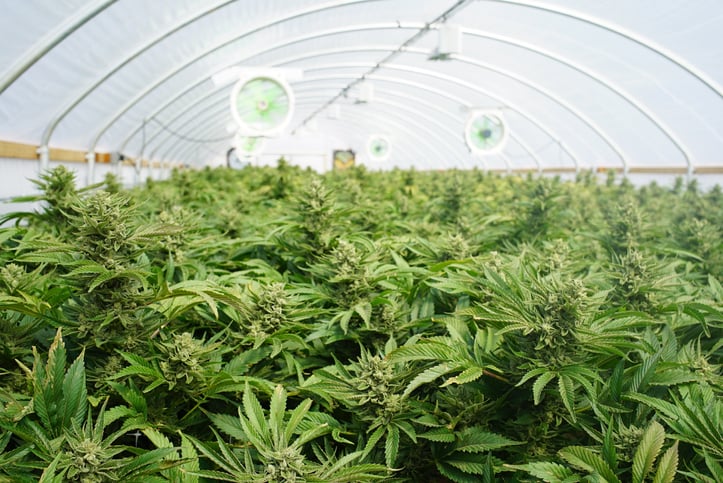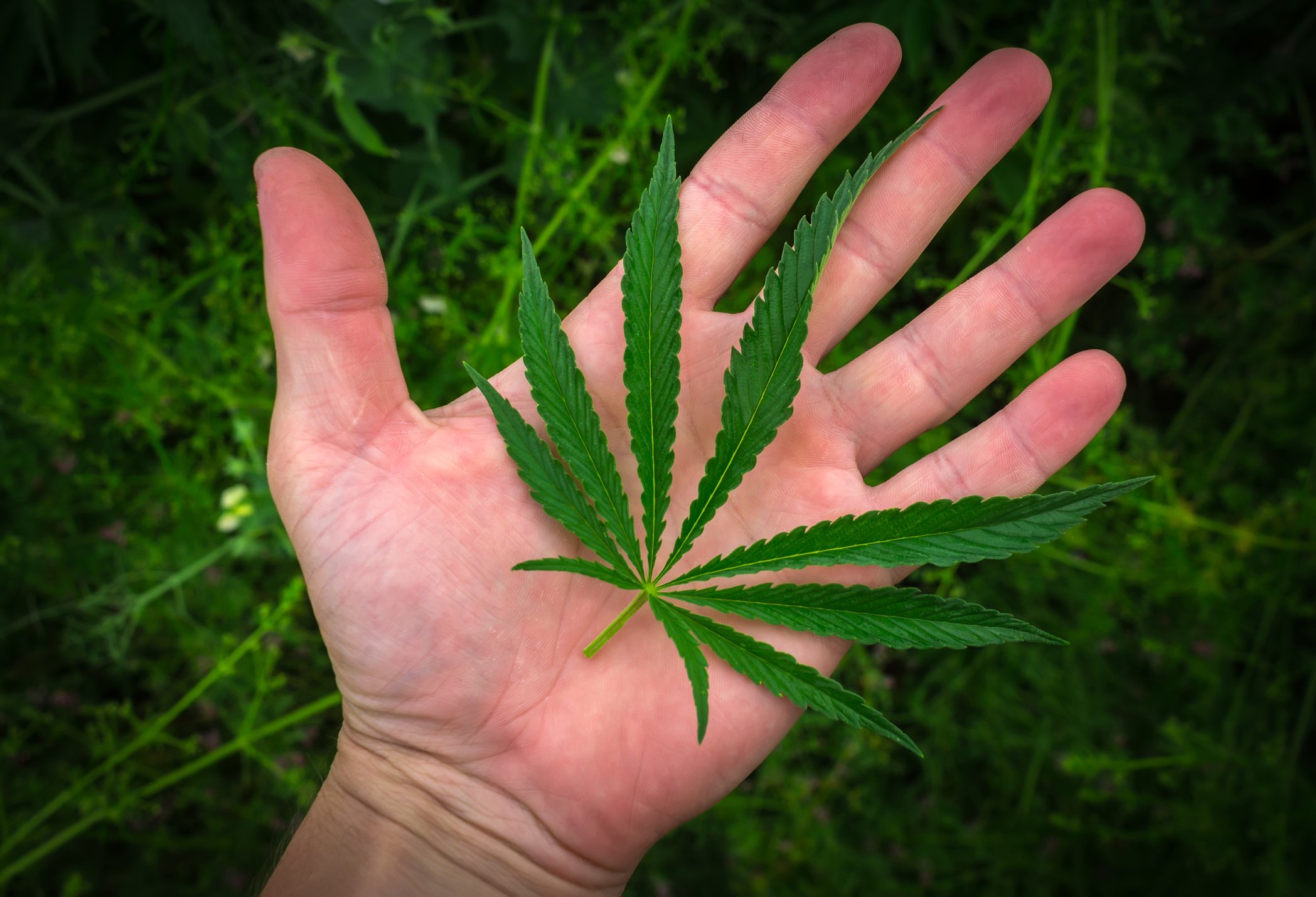Innovative Industrial Properties (IIPR +1.84%) and Scotts Miracle-Gro (SMG +1.59%) both supply the marijuana industry. Scotts' stock was up roughly 72% in 2019, while Innovative was up about 67%. That said, by the end of the year Innovative had fallen 45% or so from its highs, a drop that tracked the share price declines of its marijuana-growing customers. Scotts, which has a large lawn care business, was only down around 5% from its 2019 highs. Does that make Scotts a safer stock, or Innovative a better value? Perhaps it's more complicated than that.
The core of the business
Innovative Industrial Properties only does one thing: It owns grow houses and other properties related to the marijuana business. The real estate investment trust (REIT) uses a net lease structure, which means its lessees are responsible for most of the costs of the properties they occupy. It's a fairly low-risk approach to owning real estate, with Innovative essentially making the difference between its cost of capital and the rents it charges. When you boil it down, the REIT is really a funding source for marijuana companies. They sell their grow houses to Innovative and sign long-term leases with it. They get cash they can use to fund their growth. Innovative gets a property and a dedicated tenant. And since it can be hard for marijuana companies to get financing from traditional banks, the REIT usually gets a pretty good return, too.

Image source: Getty Images
Scotts is entirely different. Roughly 70% of its top line came from its lawn care operations in fiscal 2019, with only around 20% from its marijuana-focused Hawthorne division. (The rest of its revenues are classified as "other.") Hawthorne sells hydroponic equipment of the type that is used to grow marijuana in the facilities that Innovative owns. And while that division has grown quickly, with sales up 95% in fiscal 2019, it is still a relatively small contributor to Scotts' overall business. Even then, the numbers need to be taken with a grain of salt because a big acquisition was the main catalyst for the year over year increase. That said, taking out the effect of acquisitions, the company said that sales at Hawthorne were up 24% in fiscal 2019, which is still pretty impressive. For comparison, its lawn care sales increased by 8%.
The opportunity
The big story for both companies remains the growth of the marijuana sector as pot and its derivative products become increasingly more available legally. The opportunity is huge: Innovative expects the legal market to grow from around $10 billion in 2018 to roughly $30 billion by 2023. Longer-term expectations are even more impressive, with some industry watchers suggesting the marijuana industry could grow to $166 billion over time. (That could be Wall Street hyperbole, but there's no way to know at this point in time.)
Innovative's approach here is to provide capital to the industry as it grows, with a focus on medical marijuana. It has expanded rapidly, going from owning just one property at the start of 2017 to over 40 at the end of 2019. Investors have been rewarded, as well, with the dividend increasing from $0.15 per share per quarter when dividends were initiated in mid-2017 to $1.00 per share per quarter at the start of 2020. Even after the recent price decline, the stock is up nearly 300% since its initial public offering.
Scotts, meanwhile, sells hydroponic equipment to anyone: medical marijuana growers, recreational growers, and, likely, people growing "plants" hydroponically without regard to legal constraints. That's noteworthy, because black market marijuana is still a huge business, even in states where cannabis is legal. As you might expect, taxes and regulation make it more expensive to grow and sell pot legally than illegally. Overall, though, this provides Scotts a broader playing field within the industry than Innovative.
The financial foundations
Scotts' expansion into hydroponic gear was fueled by debt-funded mergers that pushed its leverage up to frightening levels. Recognizing the issue, however, the company has since sold non-core assets to get its leverage back down. By the end of fiscal 2019, its financial-debt-to-equity level was a reasonable 30% or so (it was more than twice that level at the start of the fiscal year). That debt reduction effort was a part of the reason for the stock's strong run in calendar 2019. At this point, Scotts appears to be on pretty solid financial ground, noting that its core lawn care business is a stable and slow-growing operation. All in, it is a financially strong and diversified company with a fast-growing marijuana segment.
Innovative's early growth was fueled largely with equity sales. It only started to use debt in 2019. At this point, the company's financial-debt-to-equity level is a touch under 15%. So its balance sheet is in pretty good shape, too. The big difference is that it only owns grow houses, so it is highly focused. Its properties are basically fully occupied today, but the industrial facilities it owns could be leased to another grower or repurposed if a tenant were to go belly up. Despite its narrow focus, there is a benefit to owning physical assets. All in, Innovative looks to be on solid ground, too.
Valuation
Because of Innovative's rapid growth, it's hard to use past results to accurately gauge the valuation of the stock. Even using third-quarter results as a run rate isn't a great option, since it has already bought more assets. Since the Q3 data was the last official set of numbers the company delivered, however, it's the best option available. Those results put the REIT's adjusted funds from operations (AFFO), like earnings for an industrial company, at an annual run rate of about $3.45 per share. That puts its price-to-AFFO ratio at roughly 22, which is pretty high for a REIT. But if Innovative can continue to grow quickly, 22 is not unreasonable. Note, too, that using the $3.45 per share AFFO run rate would have produced a price-to-AFFO ratio of around 40 before the stock cratered. So its valuation today is much more reasonable than it was. The yield, meanwhile, is roughly 5.5%, which isn't bad for a REIT these days.
Scotts, meanwhile, trades at a price-to-earnings ratio of around 13.5, versus its five-year average of over 26. That's a bit misleading because one-time charges artificially depressed earnings in 2018 (boosting the P/E ratio) and biased the average higher, and the asset sale noted above increased earnings in 2019. Using the company's fiscal 2019 adjusted earnings, which factored out the asset sale, P/E is around 23 -- in line with historical trends. The yield, meanwhile, is roughly 2.2%. That said, Scotts doesn't have the same growth outlook at Innovative since it is a mix of a fast-expanding pot business and a slow-growing lawn care operation.
Which is better?
Picking between these two names isn't easy. Now that Innovative's stock price has fallen 45% or so, its valuation looks pretty compelling, assuming it can continue to rapidly expand its portfolio. The three properties it has added since the end of the third quarter suggest that it can. So income investors looking for a mixture of yield and dividend growth should probably lean toward Innovative. Investors who are worried about focusing too heavily on the marijuana sector, however, might want to look at Scotts Miracle-Gro. Its valuation appears to be reasonably fair, given the solid core lawn care business and the growth catalyst provided by its cannabis-focused Hawthorne division. Neither stock looks like a bad choice today for investors seeking exposure to the marijuana space -- the question is more about how you want to get that exposure.





